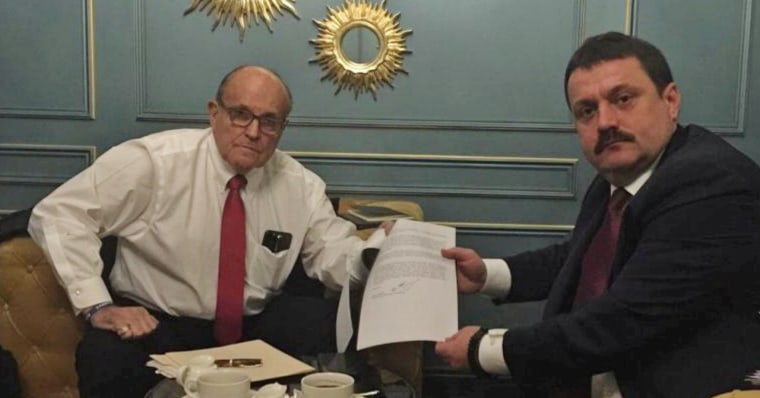At first blush, a report about the Treasury Department sanctioning a Ukrainian parliamentarian may seem like the sort of thing many Americans will skip right past. But the political relevance of a story like this one matters.
The Treasury Department has designated Andriy Derkach, a pro-Russian Ukrainian promoting discredited allegations against Joe Biden, for sanctions related to foreign interference in the U.S. election.
As part of the sanctions, U.S. officials argued that Derkach "has been an active Russian agent for over a decade, maintaining close connections with the Russian Intelligence Services." The Treasury Department added, "Derkach has directly or indirectly engaged in, sponsored, concealed, or otherwise been complicit in foreign interference in an attempt to undermine the upcoming 2020 U.S. presidential election."
What makes this so significant, however, is Derkach's possible interactions with Republicans in the United States.
It was late last year, for example, when Donald Trump's personal lawyer, former New York City Mayor Rudy Giuliani (R), launched an effort to dig up dirt against Joe Biden in eastern Europe. Among the most notable figures Giuliani relied on for information was ... Andriy Derkach.
Or as Chris Megerian summarized, the American president's personal lawyer "was meeting with someone that U.S. officials describe as a Russian agent while they were both targeting Joe Biden in the upcoming election."
But did the Ukrainian have any other U.S. partners? Derkach also claims to have fed information to Sen. Ron Johnson (R-Wis.), who's helping lead an anti-Biden effort in the Senate ahead of this year's elections.
Asked whether he'd possibly relied on information from pro-Kremlin Ukrainians, the Wisconsin Republican replied that he and his panel "are getting information from a variety of sources." He added, "My question is: What are Democrats afraid of in my investigation?"
As we recently discussed, the question need not be rhetorical: what Democrats appear to be afraid of is Johnson being used to launder Kremlin-backed intelligence, peddled by a man whom U.S. officials consider an active Russian agent.
A month earlier, at a House Intelligence Committee meeting, Rep. Sean Patrick Maloney (D-N.Y.) pressed Rep. Devin Nunes (R-Calif.) -- the panel's top GOP member -- on whether the Republican had received anti-Biden information from Derkach.
According to a transcript from the closed-door discussion, Nunes didn't want to answer.

